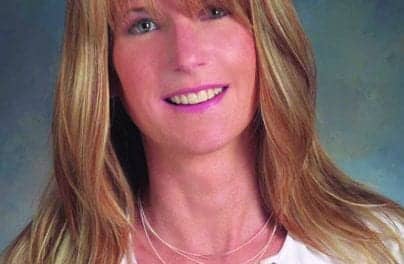![]() Ida Institute, Naerum, Denmark, recently concluded the third instalment in its three-seminar series titled Enabling Communication Partnerships. Three separate seminar sessions held in Skodsborg, Denmark explored the role that multiple communication partners can play in the human dynamics associated with hearing loss.
Ida Institute, Naerum, Denmark, recently concluded the third instalment in its three-seminar series titled Enabling Communication Partnerships. Three separate seminar sessions held in Skodsborg, Denmark explored the role that multiple communication partners can play in the human dynamics associated with hearing loss.
“As with all Ida Institute seminars, our goal was to provide a platform for communication and discussion that would expand opportunities to create, innovate, and advance thinking about the ways in which the many people who make up an individual’s social network contribute to the journey of people with hearing loss,” said Lise Lotte Bundesen, director of the Institute.
The institute’s approach to collaborative inquiry features clinical practice models, theories, and management techniques from related health care disciplines, ethnographic video interviews conducted by staff anthropologists, and short theatrical plays highlighting the challenges and experiences in everyday hearing care practice. Networking and knowledge-sharing sessions provide opportunities for participants to discuss and reflect on differences and similarities in hearing care practice around the world, sharing local experiences to develop a global perspective.
Led by a distinguished faculty comprised of experts in hearing care and related health care disciplines, the series built upon the insights and innovation of more than 70 participants to develop practical counseling tools to add to Ida Institute’s growing Tool Kit.
The Communication Partner Journey tool is designed to support the needs of communications partners at various stages along a patient’s journey of hearing loss. Similar to the Ida Institute’s Patient Journey tool, the interactive Communication Partner Journey template facilitates a better understanding of the wide range of reactions communication partners’ experience—information that can contribute to better understanding for patients within their own social environment.
The Communication Rings tool encourages people with hearing loss to consider how hearing loss might impact their relationships with people in their lives. In addition to helping patients identify the central and supporting players in their networks, the Communication Rings tool enables patients and their hearing care professionals to formulate rehabilitation goals that maintain and strengthen essential communication channels.
The Goal Sharing for Partners strategy is a step-by-step questionnaire that assists people with hearing loss and their communication partners to acknowledge the hearing loss and the limitations and restrictions it places on each. By helping them to acknowledge that they are partners in communication, the GPS tool enables the partners to accept their shared responsibility to work together to improve communication, to establish realistic communication goals, and to determine the steps necessary to achieve these goals.
Faculty members for Enabling Communication Partnerships included: Louise Hickson, PhD, acting head of the School of Health and Rehabilitation Sciences and co-director of the Communication Disability Centre at The University of Queensland; Joseph Montano, PhD, chief of audiology and speech language pathology at New York Presbyterian Hospital-Weill Cornell Medical Center; Jill Preminger, PhD, professor from Louisville University, Kentucky; Professor S.D.G. (Dafydd) Stephens, an audiological physician, honorary professor of audiological medicine at the Welsh Hearing Institute, Cardiff University; and Sam Trychin PhD, a psychologist in private practice and a consultant to Stairways Behavioral Health, Erie, Pa.
Ida Institute is planning a new seminar series slated for October, 2010. Applicants for upcoming Ida Institute seminars can apply online at www.idainstitute.com.
Established in 2007 with a grant from the Oticon Foundation, the Ida Institute is as a nonprofit independent educational institute located in Copenhagen, Denmark. The Institute seeks to foster a better understanding of the human dynamics associated with hearing loss from its recognition to its resolution—the patient journey. By serving as a catalyst for knowledge sharing and the development of innovative and practical tools, the Institute assists hearing care professionals in helping people with hearing impairment to address the physical, psychological, and social challenges of hearing loss.
[Source: Ida Institute]




